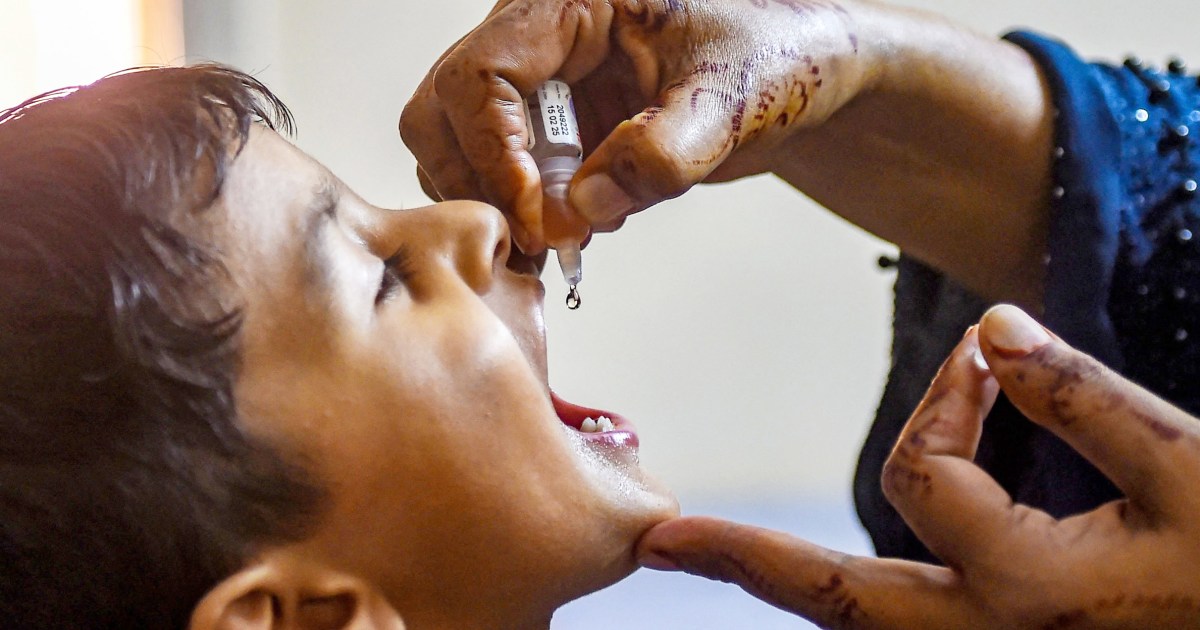
The immunizations, given to children as drops in the mouth, have reduced polio cases by more than 99%. But in very rare cases, the live virus in the vaccine can cause polio or mutate into a strain that triggers a new outbreak.
So far this year, there have been seven cases of polio caused by the wild virus — all in Pakistan and Afghanistan. Meanwhile, more than 270 cases have been caused by a virus linked to the vaccine in 21 countries across three continents.
In January, roughly 62,000 parents, mostly in Pakistan’s Sindh province, refused polio vaccinations for their children, prompting authorities there to propose the new law with penalties.
The bill is in the final stages of becoming law after the provincial assembly approved it in August. It would punish parents with up to a month in prison for failing to vaccinate their children against certain diseases; they could also be fined up to 50,000 rupees ($168). Officials said their primary aim was to boost polio immunization rates, though diseases including measles, pneumonia and pertussis are also in the legislation.
Rukhsana Bibi, a health worker in Karachi, hopes the new law will reduce vaccine refusal rates and protect health workers. Karachi is considered at high risk for a polio resurgence.
Bibi noted that in the past, abusive or threatening parents have been detained by police. They were released on the condition that they have their children immunized, and that they help the polio team with outreach efforts.
There are multiple factors fueling vaccine hesitation in Pakistan.
Many people are suspicious of the outside entities funding the vaccines and of the Pakistan government itself.
Some “fringe elements” believe in a false conspiracy theory — that the vaccines are part of a plot by Western outsiders to sterilize people, Bibi acknowledged. But many parents would prefer that the government provide better health care, food or financial assistance.
“Parents believe that’s because the government gets grants and donations for such vaccines, so it keeps focusing on (the polio vaccines) instead of providing basic health care,” Bibi said. “It makes parents suspicious.”
The public’s already-shaken confidence in vaccine drives also took a dive in 2011, when the U.S. Central Intelligence Agency set up a fake hepatitis vaccination program in an attempt to gather intel on former al-Qaida chief Osama bin Laden. Militants have also gunned down health workers distributing vaccines and sent suicide bombers to blow up the police vehicles protecting them.
Heidi Larson, director of the Vaccine Confidence Project at the London School of Hygiene and Tropical Medicine, said it was disheartening that people were so mistrustful of the government that they didn’t believe the polio vaccine was in their children’s best interests.
“I don’t think in this kind of situation that throwing parents in jail is going to help,” she said. “Not only does it not work, but it’s likely to ramp up the anger.”
Larson drew a comparison to COVID-19 vaccine mandates implemented in countries including Australia, Britain, France and the U.S.
“It’s a challenge because when you’re talking about a (vaccine) that comes with a risk, even if it’s a very small one, can you force this and make people take it?” Larson asked.
In some parts of Sindh province, the refusal rate for the polio vaccine is as high as 15%, according to a government official who was not authorized to comment publicly and spoke to The Associated Press on condition of anonymity. To eradicate polio, more than 95% of the population needs to be immunized.
The Sindh official said parents would be penalized for refusing the vaccine, but doses wouldn’t be administered to their children without their consent.
Dr. Paul Offit, director of the Vaccine Education Center at the Children’s Hospital of Philadelphia, said it would be extremely challenging to rebuild trust with punitive measures.
“The oral polio vaccine is not the best vaccine, but it’s still much better than not getting the vaccine at all,” Offit said. “It’s ultimately the job of governments to stand up for children and we know that if we don’t vaccinate a certain percentage of children, that polio will always come back.” Last year, the virus was detected in rich countries including Britain, Israel and the U.S. for the first time in nearly a decade.
Muhammad Akhtar, the father of three children in Karachi, said he believes in the importance of polio vaccination because his cousin was sickened by the disease. But Akhtar disagrees with the idea of punishing people, saying parents should be able to choose which vaccines their children receive.
Another father, Khan Muhammad, of Benaras Town near Karachi, is among those who believe in the false conspiracy theories. He has seven children and argues that polio is just like any other debilitating disease.
“Allah blessed us with these children and he alone will protect them,” Muhammad said. “At the end of the day, it’s God’s will.”






